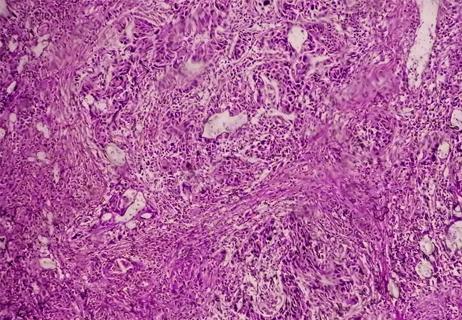Enfortumab vedotin plus pembrolizumab benefited patients, regardless of biomarker expression

Two new analyses further bolster the groundbreaking data that rapidly shifted the combination of enfortumab vedotin (EV) plus pembrolizumab into the forefront for treating patients with advanced urothelial cancer.
Advertisement
Cleveland Clinic is a non-profit academic medical center. Advertising on our site helps support our mission. We do not endorse non-Cleveland Clinic products or services. Policy
In the landmark phase 3 EV-302/KEYNOTE-A39 randomized trial of 886 patients with locally advanced or metastatic urothelial carcinoma, the antibody-drug conjugate / immune checkpoint inhibitor combination doubled progression-free survival (PFS) and overall survival (OS) compared to standard chemotherapy. Since those data were first reported in December 2023, EV-pembrolizumab has replaced chemotherapy as the preferred first-line treatment for patients with advanced urothelial cancer.
Now, a new pre-specified analysis shows positive patient-reported outcomes with EV-pembrolizumab, and in an exploratory analysis, patient response to the combination was independent of baseline Nectin-4 and programmed death ligand 1 (PDL-1) expression.
“This new regimen is the cancer advance of the century for patients with urothelial cancer. We have further shown that EV-pembrolizumab does not worsen patients’ quality of life, and that they benefit regardless of their sites of metastases and level of nectin-4 expression or PD-L1 in their tumors, says Shilpa Gupta, MD, Director of Genitourinary Medical Oncology at Cleveland Clinic Cancer Institute and a co-author of the study.
Dr. Gupta presented the data on patient-reported outcomes earlier this year at the 2024 American Society of Clinical Oncology meeting. In the 128 patients with moderate-to-severe pain at baseline who were treated with EV-pembrolizumab, there was a meaningful improvement on the Brief Pain Inventory of worst pain. “Assessment with the Global Health Status / Quality of Life scale developed by the European Organization for Research and Treatment of Cancer (EORTC) revealed that in patients treated with EV-pembrolizumab, there was no detriment to their well-being. And in Global Health Status scores, we saw clinically meaningful improvement over chemotherapy, which is huge. Notably, we collected patient-reported outcomes throughout their entire journeys, not just during treatment” Gupta says.
Advertisement
High levels of Nectin-4, the cell adhesion molecule that EV targets, were present in nearly all of the 800 available patient tumor samples, with 89% having Nectin-4 H scores above 150.
Importantly, patients who received EV-pembrolizumab had consistently improved PFS, OS and and objective response rate compared to chemotherapy, regardless of Nectin-4 expression H scores <275 or ≥275, and had consistent PFS and OS benefits, regardless of Nectin-4 and PDL-1 expression.
“This just confirms that you don’t need to worry about whether Nectin-4 or PD-L1 is high or not. You don’t need to measure it,” Gupta says. “This new regimen offers a beacon of hope to patients with urothelial cancer worldwide and we hope to see it become accessible and affordable globally.”
Advertisement
Advertisement

Treatment involved checkpoint inhibitor, surgery and intravesical therapy

Platinum-eligible phase 3 trial of enfortumab vedotin and pembrolizumab yields ‘unprecedented data’

Enfortumab plus pembrolizumab reduced risk of death by 53% compared with platinum-based chemotherapy

Potential treatment option for patients who are ineligible for cisplatin

Findings could help with management of a common, dose-limiting side effect

Combining advanced imaging with targeted therapy in prostate cancer and neuroendocrine tumors

Early results show strong clinical benefit rates

The shifting role of cell therapy and steroids in the relapsed/refractory setting